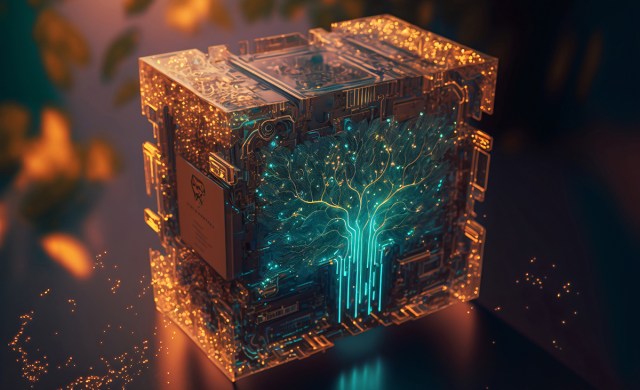
TL;DR
- At SXSW, OpenAI co-founder and president Greg Brockman provided an insider’s look at the research lab behind popular creative tools DALL-E and ChatGPT.
- Perhaps stung by criticism of building in safeguards inherent in the output of its AI tools, OpenAI is going to release future versions which designed to more “neutral.”
- Brockman is optimistic that humankind can work alongside AI and steer us in the right direction for the positive benefit of all society.
As you would expect, OpenAI’s co-founder and president, Greg Brockman, is optimistic about AI as a force for good but is washing his hands of the debate over whether AI will be used to spread bias and falsehood.
Instead, he is sitting on the fence, reworking ChatGPT to be “neutral” in future versions and making it possible for the AI to be tweaked instead by users toward whatever bias they wish.
Perhaps in doing so he aims to deflect future criticism or even lawsuits away from OpenAI and onto the users of the tech.
Speaking in Austin, Texas at South by Southwest, Brockman said: “We wanted a system to be egalitarian and treat all mainstream sides equally, but I think people were right to criticize us.”
He was referring to accusations of political bias in the ChatGPT output, which are considered too liberal for some.
Notably Elon Musk, who helped launch OpenAI in 2015, said last week that he plans to build an “anti-woke” rival to ChatGPT.
In response, Brockman, told The Information that OpenAI “made a mistake” in building in safeguards to prevent responses that many would find inflammatory.
His team has gone back to the drawing board to release new models soon that he says won’t favor any mainstream political opinion.
READ MORE: OpenAI President on Musk Criticism: ‘We Made a Mistake’ (The Information)
“But if you’re a user, and you want to customize, you should be able to within broad bounds,” he told Fast Company’s Max Ufberg in a follow-up interview. “The important thing about those balances is who decides them? We think that should be something that is decided through some legitimate sort of collective AI process. We’re actually working on that, too.”
READ MORE: OpenAI president: ‘Our mistake was definitely just being slow to respond’ (Fast Company)
Brockman goes on to say that his company is trying to devise an AI tool that society as a whole can help decide in terms of what should, and should not, be able to say.
“We want to build trust and figure out where we can trust, figure out where we put the guardrails. This is the pain of the learning.”
This is not something that is going to be solved overnight. Brockman said he thinks that society’s relationship with AI will be one of symbiosis and constant iteration. On the whole, though, he thinks society has the smarts and the determination to ensure that AI stays on the right side of the dystopian equation.
“It’s going to be a project of decades to really go from where we are to the kinds of systems that we’re talking about. There’s going to be great things that happen, there’s going to be causes for joy, causes for grief. You can’t just blindly think it’s all going to work out, but you have to engage with all the problems,” he says.
“I think it is possible that we will end up… [with a] real good future. It won’t be perfect. There will certainly be many problems along the way. But I think we can rise to the occasion.”
AI, he feels, is going to impact every aspect of society. He said, “I think it’s really going to be a tool, just like the cell phone in your pocket, that is going to be available when it makes sense.”
Brockman also spoke about the possibilities for positive change with the use of AI and how it would ultimately free up humans to focus on important work that AI can’t yet do.
“The most important thing is going to be these higher level skills — judgement, and knowing when to dig into the details,” he said of the future of working in a post-AI world. “I think that the real story here, in my mind, is amplification of what humans can do.”
At a more granular level he talked about how M&E might use generative AI tools. His suggestion that AI be used to write alternative endings to the finale of Game of Thrones made headlines at The Hollywood Reporter.
Likening the technology to a group of “assistants” who aren’t perfect but are “eager and never sleep,” Brockman said ChatGPT could help do the “drudge work” for writing and coding but also have the ability to add a more “interactive” entertainment experience.
“Maybe people are still upset about the last season of Game of Thrones. Imagine if you could ask your AI to make a new ending that goes a different way and maybe even put yourself in there as a main character or something.”
READ MORE: Using ChatGPT to Rewrite ‘Game of Thrones’? OpenAI Co-Founder Says “That Is What Entertainment Will Look Like” (The Hollywood Reporter)
EXPLORING ARTIFICIAL INTELLIGENCE:
With nearly half of all media and media tech companies incorporating artificial intelligence into their operations or product lines, AI and machine learning tools are rapidly transforming content creation, delivery and consumption. Find out what you need to know with these essential insights curated from the NAB Amplify archives:
- AI Is Going Hard and It’s Going to Change Everything
- Thinking About AI (While AI Is Thinking About Everything)
- If AI Ethics Are So Important, Why Aren’t We Talking About Them?
- Superhumachine: The Debate at the Center of Deep Learning
- Deepfake AI: Broadcast Applications and Implications

